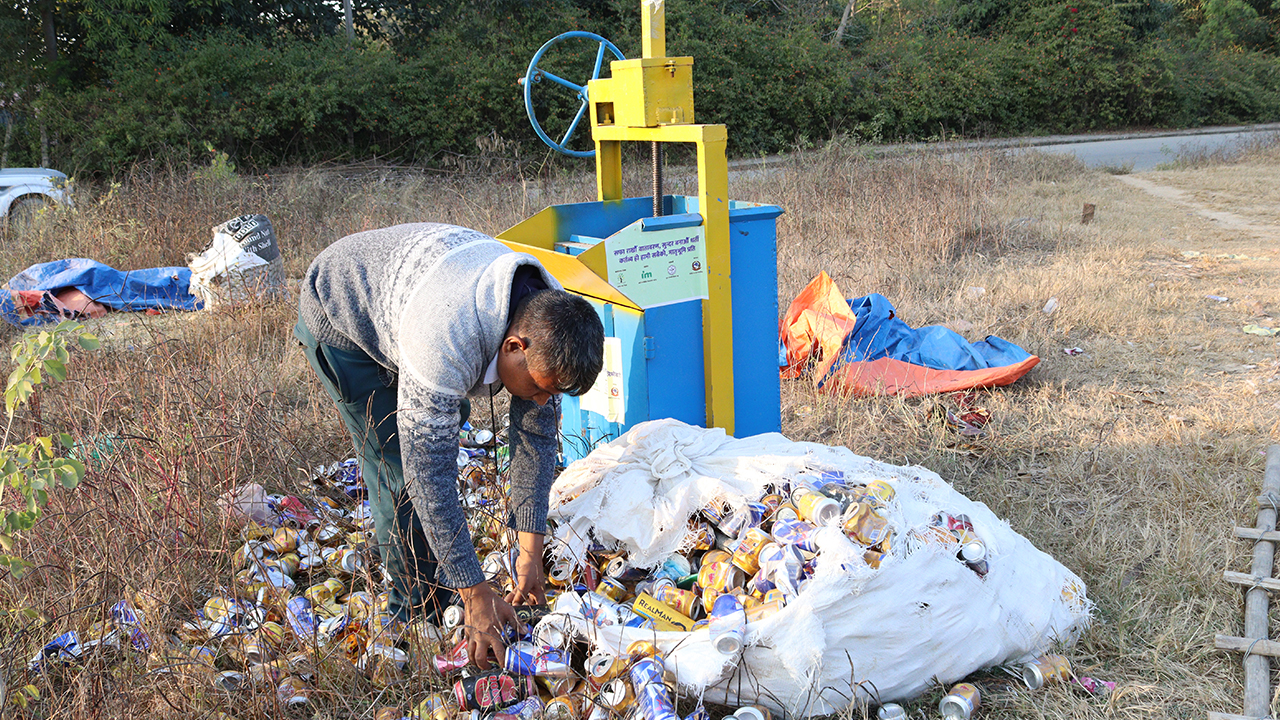
Optimizing Waste Management: Dinesh’s Success with Baling Technology
Dil Bahadur Sarki, also known as Dinesh, is a 39-year-old resident of Ghorahi Sub-Metropolitan City, Ward No. 16, where he manages a scrap center that has been operational for the past four years. His family consists of five members, including his 90-year-old mother, wife, and two sons. Before venturing into the scrap business, Dinesh worked as a sanitation and waste management worker in Ghorahi Sub-Metropolitan City. Despite his dedication, the income from this job was insufficient to sustain his family. Seeking a better livelihood, he established his scrap center (Rapti Kabad Collection Center) in Ghorahi Sub Metropolitan City, Ward 16, Dang, which now employs 25 waste workers and plays a vital role in the city’s waste management, particularly in recycling and promoting the circular economy. He used to manage all the waste, primarily plastics and metals, without the use of any machinery. The transportation cost was high due to the large volume of uncompressed plastic bottles. Recognizing the challenges faced by Dinesh, CLEAN UP NEPAL as implementing organization, funded by IM Swedish Development Partner and local coordination support by Freed Kamlari Development Forum (FKDF) provided him with a manual baling machine to enhance his operations on 2 September 2024. This machine has significantly improved his ability to manage and process plastic waste efficiently. By compressing large amounts of plastic into smaller, manageable bales, Dinesh has been able to optimize storage and transportation. Previously, transporting uncompressed plastics required multiple trips, increasing costs and labor demands. The baling machine has streamlined this process, enabling him to transport larger quantities of compressed waste in a single trip, reducing transportation and human resource expenses. The introduction of the baling machine has brought remarkable changes to Dinesh’s business. To date, he has compressed a total of 4500 KG of plastic and metal waste, averaging 300 KG per week. For the occupational health and safety of the waste workers at the scrap center, the organization has provided them with PPE kits. The savings on transportation and labor have improved the profitability of his scrap center, while the ability to manage waste effectively has reinforced his commitment to sustainability. His journey exemplifies how targeted interventions can empower individuals and bolster local waste management efforts.
